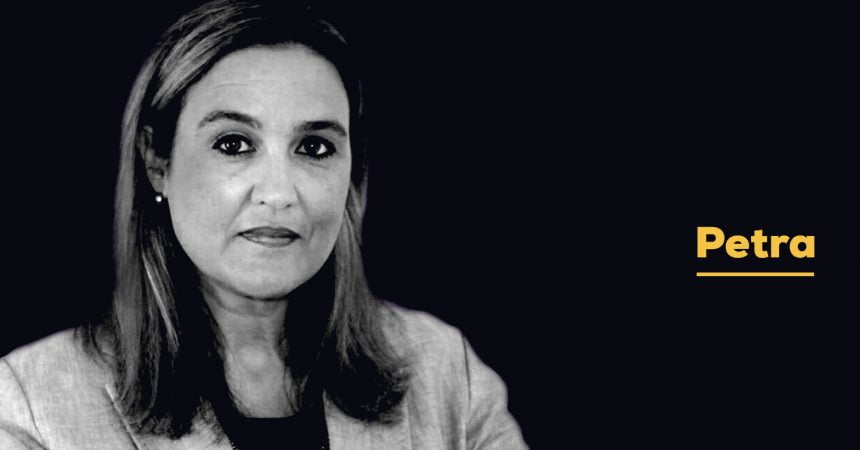The dust is settling after a week of collective acts of sympathy, solidarity and respect. Two years have passed since the assassination of journalist Daphne Caruana Galizia.
Where does it go from here?
Daphne has not been forgotten. Her voice is louder now than before. It can be heard from Valletta to Sydney, London, Berlin and the rest of the world.
The events last week included talks, articles, vigils, books, reports, films, interviews, poetry, a photo exhibition in Brussels, and the main demonstration in Valletta. They attracted good participation and media attention.
Sadly for Malta and its international reputation, the government continued with its game of claiming ‘no stone unturned’ while making no progress. The US embassy has made it clear that FBI help, though available, is not being made use of.
After the main demonstration, government workers swept away all traces of protest from the makeshift memorial. They persist in clearing it, each day. They show contempt for Daphne, her family, for independent journalism and free-thinking citizens. They also further damage Malta in the eyes of the honest world.
What will it take for them to listen up, shift gear and move, to ensure that justice is done?
First, a change could be prompted by legal action. The judiciary must do their jobs in the interest of the State, not the government. Activists and lawyer-politicians from the Opposition benches keep their eye on the law courts. These byzantine courtroom battles require stamina.
Second, the Nationalist Party needs to rise to the occasion. It needs leadership that all people of goodwill can follow. However unfair this might be for the present leadership on a personal basis, in politics the common good must override personal ambitions.
Third, more people need to participate and engage before things get worse. Many feel disenfranchised and disillusioned with the political class. This may be an honest position, but it is an ineffective tactic. It neuters the threat. Continuously rejecting the government’s political rivals, whoever they are, weakens the pressure for action.
A tricky pattern is emerging whereby the Opposition is, in effect, being stonewalled by protesters. Besides the demonstration for justice on 16 October, this also featured at the environment rally held in September.
Online discussions, after both the environment and justice rallies, centred on crowd numbers. This was the case following all environment rallies in Malta over the last 15 years or so. It is the same everywhere. During the street protests in London this week, on climate change and on Brexit, commentary on UK television also highlighted the numbers.
Whatever issue is being protested about, if the crowds are too small to influence wider voting patterns, then street rallies can readily be ignored by the centre of power. They can sweep away the posters and move on.
Persuasion is not rooted in big numbers. Activists, writers, journalists, columnists, academics, public figures and politicians, can influence change gradually, planting seeds of thought, creating waves and shaping ideas. Their input might gather momentum later. Every first word does not need validation by masses of people.
But politicians calculate their moves from one election to the next, too. If their position remains strong, they can choose to ignore angry groups marching in the streets.
The Guardian columnist George Monbiot, writing on this week’s Extinction Rebellion climate change protests, quoted research by Roger Hammond showing that radical change “is primarily a numbers game”. Large numbers of people causing havoc “have more impact than small-scale high-risk activism”. As he says, “the key challenge is to organise actions that encourage as many people as possible to join. This means they should be openly planned, inclusive, entertaining, peaceful and actively respectful”.
An editorial in the same newspaper noted that studies by Harvard’s Erika Chenowith showed that campaigns involving more than 3.5% of the population invariably succeeded. In Malta that would be perhaps 16,000 people, more or less.
The largest protest action I remember was 10,000 signatures, collected on paper, presented to parliament in 2006, objecting to large-scale development at Ta’ Cenc. Did it work? Well, the plan has been shelved. More recently, around 4,500 online objections on the DB project did not gain ground.
The Zonqor point protest in 2015 was probably Malta’s largest-ever environment rally, with the turnout cited as over 3,000 people. The project was scaled down, but not scrapped.
Inclusivity is a key element at any national demonstration. This means reaching out widely, to people from all political parties, social groups and educational backgrounds, including influencers, followers, and even politicians with mixed opinions or multiple agendas.
On the environment, this includes people who themselves added to the environmental degradation of this country through development or pollution (who hasn’t?). On justice, it includes those who disagreed or even argued with Daphne when she was alive. The environment, and justice, must become everybody’s concern.
Any citizen, including politicians, should be free to participate in open, public protests. Otherwise, the issue is not inclusive and national but will remain exclusive and partisan.
Seeking to widely influence opinions, and to sway a government snug and secure in its seat of power, is tough.
The aims of a protest must be clear, and numbers alone are certainly not enough. But if campaigning is partly a numbers game, then an inclusive approach is vital. Members of the Opposition and their wide base of supporters play a critical part in this too. The government can too easily ignore any niche groups, just as it clears away the flowers and candles in Valletta every day.
To thrive and succeed, the shout of protesters must not be lost in an echo chamber.












